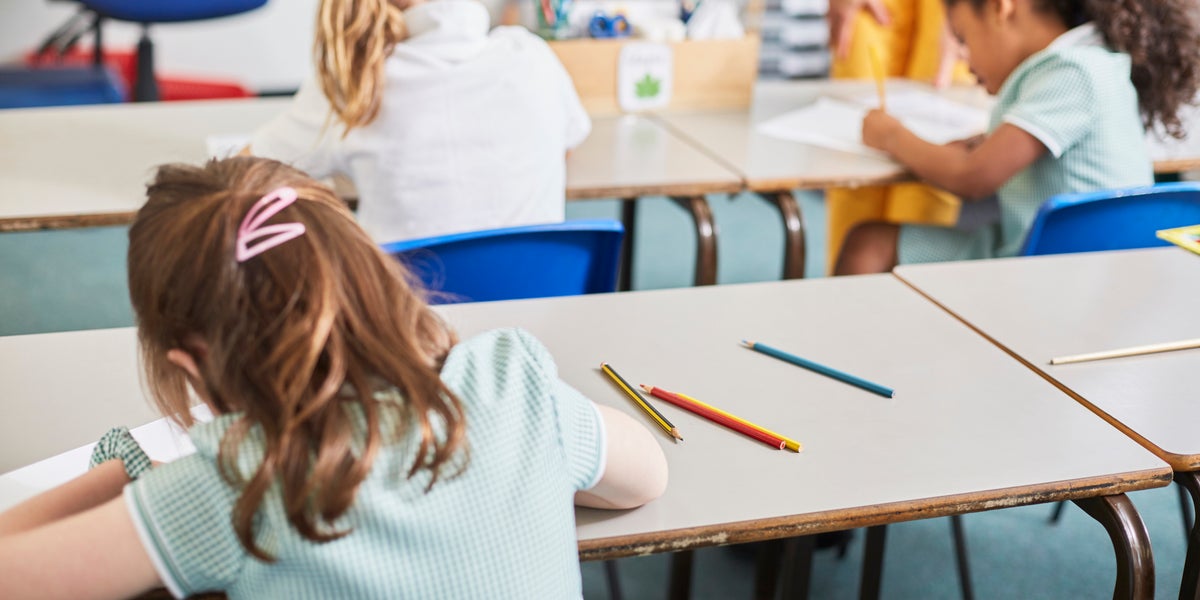
Preparing for the New School Year: Teacher Tips for Parents
As September approaches, it's time to gear up for the return to school. For many families, this means a mix of excitement and anxiety as children prepare to start a new academic year. Teachers across the country are reminding parents that their involvement can make a big difference in helping students transition smoothly into the school environment.
Early Years: Building Independence
For young children entering school for the first time, teachers emphasize the importance of developing independence. Sarah Holyoake, Head of Early Years at Stephen Perse Cambridge, highlights that teaching kids to complete basic tasks on their own—like dressing themselves, managing their coats, and using the toilet independently—can reduce feelings of overwhelm when they arrive at school.
Recognizing their name is another essential skill. Many daily routines, such as identifying their personal items or seat, rely on this ability. Additionally, practicing social skills like sharing and taking turns with friends can help children navigate classroom interactions more confidently.
All Ages: Establishing Routines and Communication
Steven Britton, a mathematics tutor, suggests that parents should begin establishing consistent routines before the school year starts. This includes setting a regular bedtime and wake-up time to help children adjust to the school schedule. If kids have been sleeping in during the summer, getting them used to waking up early will ease the transition.
Once school begins, clear communication with teachers is crucial. Parents should ensure all forms, permission slips, and payments are submitted on time. It’s also important to inform educators about any changes in contact information, custody arrangements, or learning and health needs. Sharing concerns about a child's anxieties or challenges at home allows teachers to provide tailored support.
Britton also encourages parents to foster independence by letting children carry their bags, pack homework, and manage their own timetables where appropriate. Creating a tidy homework space and supporting learning at home without doing the work for them can also be beneficial. Asking open-ended questions, such as “How did you figure that out?” instead of just checking answers, helps build critical thinking skills.
Celebrating Effort and Modeling Positivity
Teachers also recommend celebrating a child's effort rather than just focusing on results. This approach helps build resilience and a growth mindset. Modeling a positive attitude toward school is equally important. Children who hear adults complaining about teachers or school rules may struggle to respect the learning environment.
Secondary School: Navigating the Transition
The shift from primary to secondary school can be particularly challenging. Chris McNab, headteacher at Overton Grange School, advises parents to discuss secondary school in a positive light. Focusing on the opportunities it brings—such as new subjects, friendships, and greater independence—can help ease fears.
Practicing the journey to school together before the term starts can also be helpful. Parents should time the trip, discuss safety, and plan for unexpected situations. Familiarity with the route builds confidence, especially on the first day.
Getting organized ahead of time is key. Secondary school often involves more responsibilities, including timetables, homework, and subject-specific equipment. Helping children practice packing their bags and reviewing their schedules can reduce stress on the first day.
Encouraging responsibility through small tasks, like making lunch or setting an alarm, can boost confidence. It’s normal for children to feel anxious about navigating a larger school environment. McNab reassures parents that secondary schools are well-equipped to support new students, and staff are available to guide them.
Supporting Emotional Growth
Parents should remain available to listen and help their children talk through challenges, such as changing friendships or managing homework. However, it’s also important to encourage children to find their own solutions rather than fixing everything for them. Balancing support with independence is a vital part of building confidence.
Staying informed through school emails and newsletters is another way to stay involved. These resources keep parents updated on important information and events.
With the start of the school year bringing both challenges and opportunities, parents play a crucial role in helping their children adapt and thrive. By fostering independence, maintaining open communication, and modeling a positive attitude, families can set the stage for a successful academic year.